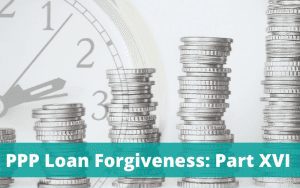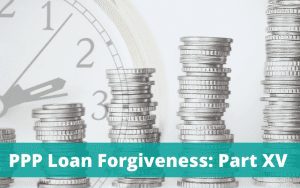 LSL Partner Ron Stumpf Talks with Matt Davis, President of Southland Economic Development Corporation (EDC)
LSL Partner Ron Stumpf Talks with Matt Davis, President of Southland Economic Development Corporation (EDC)
Business lending over the next several months
Ron: We’ve been getting a lot of questions from our clients who are curious about business lending in this uncertain economy. What can you tell us?
Matt: This is definitely a volatile environment. Historically when there are downturns in the economy, people have tended to lean on SBA programs for the government guarantee, which minimizes their exposure. We are almost certain we can anticipate a fairly substantial bump in SBA lending volume. Some banks had fairly liberal, conventional lending policies with respect to loan-to-value; however, those are gone now. Everybody is waiting to see what happens, including SBA lenders.
Another round of closures!
Ron: Here we are again with more closures. What do you think?
Matt: As SBA lenders, we still anticipate a rather large bump in volume, just given bank skepticism to underwrite these loans, even with future rounds of stimulus, which I know are being debated. The paycheck protection program (PPP) was extended through August 8th, and there is $130 billion plus or minus that is still available for borrowers wanting to take advantage of the program. But most of what we did the last few months has been giving technical assistance to folks that were trying to navigate disaster loans and PPP loans. There are still more people looking to obtain a PPP loan. The lesson the SBA has taught us is the longer you wait, the more palatable the program constraints get. And so I think there is a healthy subset of people out there that are waiting for the rules to get less arduous than they are right now.
What are the options for people on the “edge”?
Ron: What advice do you have for those companies that did not come out of this contraction unscathed?
Matt: I think everybody needs to be prepared by having a plan in place and being able to illustrate to any lender what the plan is to rectify things. We sit down with our customers and ask them about their prospects. We want to know if we all get through the fall—and society gets closer to a vaccine—what their plan is. We ask how they are going to adapt or if they have an idea of how to modify their business model to survive in today’s “new normal” business climate. We ask them to flesh out what the contingency plans look like to alleviate lenders’ skepticism as they’re reviewing their credit.
Ron: Would a revised business plan be a good idea? What would satisfy you?
Matt: I think a revised business plan may be taking it a bit far. We might like to see a narrative from management as to how they plan to go about navigating the new universe. It doesn’t necessarily need to be any more involved than that now, depending upon how their prospects look. If they’re really not doing well, I suspect they may want to dust off the projections and update them. That would be my advice.
Any chance of conventional loans?
Ron: So aside from Paycheck Protection Program loans (PPP), if a company wants to get a conventional loan or wants to get an SBA loan—whether it means getting a line of credit or buying a building—what does it look like for them now? What might some of the challenges be?
Matt: If they’ve come out of this pandemic relatively unscathed, we call them the “semi-immune.” There’s still some risk for everybody, but we’ve seen deals that show the adverse effects have been minimal lately. Those people will still have access to conventional lending products, lines of credits, and an SBA loan.
But the burden of proof will be on these surviving companies to prove their fiscal health. They must paint a financial picture that shows they will have adequate operating reserves to carry them through this wave and the next wave until there’s a cure and a vaccine. Those types of clients are going to be fine unless circumstances change, or the situation worsens. Interest rates are unbelievably low. But there’s going to be that universe of folks that had challenges, and whether they did or did not have access to PPP, they’re going to be limping. The process for them to get any type of substantial credit will be impaired, but for the SBA picking up some of that slack.
Lending Ratios: has anything changed?
Ron: Do you think the banks have changed at all in their ratio requirements since COVID-19?
Matt: No, I don’t think so. If you’re a viable client, they’ll stick with the 50 to 40 model. Before the pandemic, many banks wanted to take that chance, where it’s ordinarily 50% bank, 40% SBA, 10% borrower. We saw a lot of banks doing 60%, and the SBA was doing 30%. The borrower was still coming in with a requisite 10%. That offer has been curtailed drastically over the last several months. It took a while after the financial recession in the 2007 to 2009 timeframe for a sort of amnesia to set in, and banks were starting to get pretty liberal with their lending policies.
While that was a relatively new phenomenon that we saw in advance of the pandemic, I suspect it won’t be the case going forward, because every bank has their own ratios and we don’t know what those ratios are. But, for sure, the banks will be trying to minimize their exposure to those potentially less-well-off clients as a result of this widespread economic tumble. And so utilizing SBA becomes all the more important.
Know Thy Banker
Ron: We wanted to touch base on whether or not it pays to have a good relationship with your banker. Do you still feel relationships are essential and that companies should talk with their bankers and have more of a consultative relationship?
Matt: Yes, I agree that relationships are key and that however big banks are these days, it is still a relationship business. The internet and mobile banking have taken away from that, but that’s wrong. As SBA lenders, our relationship is with the banks. So, most of our involvement is marketing to banks and brokers and CPAs. Bottom line, relationships are key in lending. Banks need to come out of the pandemic in good health, too.
Summary of Our Business Lending Covid-19 Convo
-
- Some companies are “semi-immune” and will make it through unscathed. They may qualify for conventional loans.
- We will all need to work to help companies that are not so immune and are “on the edge” as they seek PPP and SBA loans.
- Loan to value ratios are harder to pinpoint during the uncertainty of the pandemic.
- Businesses of all sizes would be well-advised to nurture relationships with the people at their banks. Personal connections matter more than ever.
A bit about Matt Davis
Matt has been at Southland Economic Development Corporation since 1997. Southland was his second job ever, and it’s not an exaggeration: he actually came up through the mailroom. After interning, he was promoted to loan officer at the tail end of college, and then took over the production aspect of the business in the early two-thousands. He has been president since 2011 when his predecessor passed away. He serves as a board member for various nonprofits in the area. He is vice chairman of the trade association that governs trade associations related to certified development companies, which is what Southland is. He is passionate about assisting small businesses and helping them navigate the lending landscape.
About Southland
Southland does 504 lending and they pride themselves on providing technical assistance for their clients. Matt says, “We probably know more than most about the lending products available to a borrower or potential borrower, and we are proud that over the last several months, more than half our time was devoted to solving problems for business people going through this pandemic, as well as being a resource for the local community, even if that meant it was a product that we didn’t necessarily administer. If that was the right thing for the client, that’s what we aimed to do.”
* * *
About Ron Stumpf, CPA, Partner, LSL CPAs
With four decades in public accounting, Ron’s area of expertise includes audits, reviews, compilations, and mergers and acquisitions. His savvy business sense partnered with his knowledge of government regulations and tax law make him the perfect match for entrepreneurs and business owners.
Ron’s expertise in assisting clients get financing has led him to serve on the Loan Committee of the Southland Economic Development Corporation (EDC) since its inception in 1992. He’s been involved in Southland EDC’s Executive Committee since 1997.





